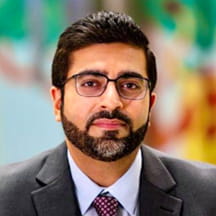In the past 10 years, hospitalizations for behavioral and mental health emergencies for children and adolescents in California have increased by more than 40%. During this time, the supply and availability of resources—including pediatric psychiatrists, psychologists and psychiatric inpatient care facilities—has decreased by approximately 15% to 20%.
It is estimated that approximately 17.1 million children and adolescents in the United States—1 out of every 4—suffer from a behavioral or mental health condition. In the last 10 years, suicide has become the second leading cause of death for youth and young adults. It is well-documented that since the pandemic, a challenging situation has been made worse and has had a disproportionate effect on children. This is a direct consequence of social isolation from the pandemic, loss of routine, school closures, as well as the effects of COVID-19-related parental physical, emotional and economic distress.
To help improve care, Children’s Hospital Los Angeles (CHLA) began a thorough evaluation of its behavioral health services. The hospital used data from its Community Health Needs Assessment that indicated families were having difficulty finding behavioral health care. During the pandemic, CHLA launched several new services that have greatly benefitted the community.
But our work is far from over. For cities, the state and pediatric medical centers like ours, it’s an all-hands-on-deck situation. We must focus our efforts on early identification and timely intervention to prevent behavioral health issues and conditions from becoming complex. We need to prevent patients from relying on emergency department care and from becoming so complex that they must be admitted to a psychiatric inpatient unit.
To accomplish this, CHLA reviewed the entire continuum of care when it comes to pediatric and adolescent mental health and identified three critical components.
1. Educating pediatricians about behavioral health screening and management
When a child or adolescent experiences a behavioral health issue, parents often feel alone, unprepared, overwhelmed and unaware of where to turn for help. These families need help taking action and gaining timely access to the appropriate services. We do this by partnering with, educating, and empowering pediatricians so they can screen for behavioral health issues and begin that timely intervention.
We have worked diligently with our more than 200 community pediatricians in the CHLA Care Network by providing them with a robust training program to better serve patients and families coping with behavioral health challenges. CHLA network pediatricians reference select mental health screeners to help detect signs of depression and anxiety, which enables them to triage for issues and attend mild to moderate cases of anxiety, depression and ADHD, as well as provide timely intervention for patients who may be more complex or who may be a danger to themselves or others.
The initiative has generated 5,238 screeners. Further, to provide patients and families expert guidance when they need it, a “psychiatry warmline” was established to provide pediatrician members of the CHLA Care Network with answers and resources regarding how best to support behavioral health needs of their pediatric patients before they reach crisis level. The line is overseen by CHLA’s Division of Psychiatry and is staffed by CHLA psychiatrists eight hours a day, five days a week. The program has led to more than 100 consultations and helps pediatricians identify qualified mental health specialists in their local area.
Over the past 18 months, CHLA also launched an integrated behavioral health program by embedding behavioral health specialists in three of Care Network’s pediatric practices. The results are promising, and we are now expanding the program rapidly to several other practices.
2. Outpatient behavioral health care
CHLA conducts over 100,000 new patient visits in our outpatient clinics each year. Research shows that one out of every four CHLA patients has a behavioral health issue. To enhance the hospital’s care coordination and efficiency, CHLA is exploring the integration of behavioral health in its subspecialty clinics. This will be accomplished by embedding behavioral health trained specialists in the clinics and leveraging the use of technology and automation for screening behavioral health issues.
With this approach, patient families will be able to combine behavioral healthcare with medical appointments in a single visit. Clinicians will be able to address all aspects of a child’s health, including psychosocial history, screening for psychological well-being, and behavioral contributions to other medical issues. This integrated model would reduce the number of visits a family would need to make and enhance both medical treatment compliance and health outcomes. In combination, we opened a new Developmental and Behavioral Health Outpatient Center in 2021 to further expanded our outpatient behavioral health services so patients can get the services that they need.
3. Intervention programs in the Emergency Department (ED)
Increasing numbers of youth are arriving at CHLA’s ED with serious mental health needs, often during a crisis. At times these youth are suicidal, out of control or attempting self-harm. The ED annually supports more than 1,000 patients with behavioral health concerns. CHLA’s ED is being redesigned with a dedicated space for ED patients in crisis and an integrated team of pediatric psychiatrists and mental health social workers to foster faster evaluations, appropriate treatment and prompt referral to the most appropriate care site for the child.
Many children’s hospitals nationwide are facing similar constraints in trying to meet patient needs. We have implemented these measures and have built a strong foundation, but more work lies ahead. We must continue to advocate at the local, state and federal levels for policies and funding that improve access to behavioral health services for children and adolescents.




